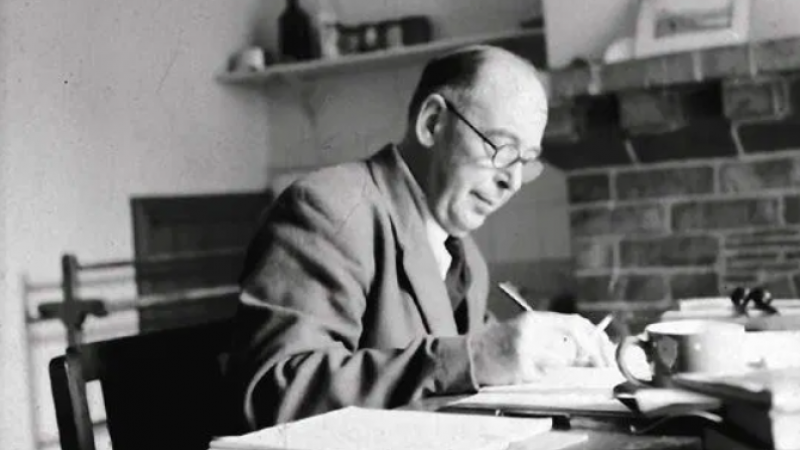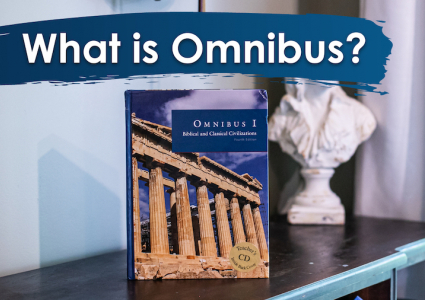Helping Students Enjoy the “Uncharted” Lewis

Several years ago, I was talking with a friend about C. S. Lewis. He was a professed Lewis fan. We talked about Narnia for a bit and then I started branching out. He had not read much past Narnia. He thought he was a Lewis fan, but he was a Narnia fan. Before I say more, note that all of us should be Narnia fans, but we should not stop there.
So, in this post, I wanted to take some time to sketch out a Lewis reading plan for the students, or adult, who was a Narnian, but who would be so blessed if they went deeper into, what for them might be, the “uncharted” Lewis.
Start with the Space Trilogy
The Space Trilogy is a great jumping-off point for a deeper dive into Lewis. Students who have enjoyed Narnia will be well situated to enjoy this imaginative and theological venture into outer space.
These books start with a great story. They are the result of a coin flip between Lewis and Tolkien concerning who would write books about place and who would write about time. Lewis got “time” and wrote The Space Trilogy. Tolkien got place and wrote The Lord of the Rings. We all won that coin flip!
It is almost as if Lewis anticipates this blog post, especially with the first two books of the Trilogy. Out of the Silent Planet (OSP) is a book with short chapters, interesting adventures, and intriguing characters. Even Lewis himself makes a cameo in his book. The second book, Perelandra, is another awesome adventure book (boys love adventure) with interesting stories, a weird villain, and a world hanging in the balance.
The third, and most important book in the series, That Hideous Strength, continues and culminates the entire adventure. It is one of Lewis’s masterpieces and, perhaps, his most timely fictional work for our day. It gives us a window into the great battle between an amoral, naturalistic, post-human, demonic organization and a humble, spiritual community who faces their enemies with the power of God and of all of the other planets.
All of the books cover deep theological issues, but they are fitted to the reader in a way that young people will catch what they can, love the adventure, and miss what they aren’t ready to handle. This demonstrates Lewis’s brilliance. Especially in the last book, there is some mature content. One of the villainous characters is sexually profane, but when I read the book when I was in something like 8th or 9th grade, it all flew over my head. I remember going back to the book years later and seeing this deeper layer of meaning.
The Space Trilogy is a great starting point for a deep dive, but there is more.
Move to Till We Have Faces
Till We Have Faces is one of Lewis’s most obscure books, but it was Lewis’s favorite of all his books. It is the retelling of the myth of Cupid and Psyche. In The Space Trilogy Lewis shows his mastery of adventure stories. Till We Have Faces is certainly an adventure, but Lewis impresses in this book by exploring character and psychology. Most of the book is written from the perspective of Orual, Psyche’s sister. It has always impressed me how Lewis can write in an authentic feminine voice in this master’s work.
This book is mind-bending, heart-stopping, and addictive. I did not read it until I was an adult. (I had never heard of it until I was an adult!) I started reading it on a vacation, and before long I was hiding from family members to keep reading. When they started searching for me, I hid in a closet under clothes with the light off, so that no family member would interrupt my reading.
This is another deeper into the “uncharted” Lewis, but there is another step to come.
Dig into The Abolition of Man
After Lewis has won a student over, and by the time the student has finished Till We have Faces we hope that they are Lewis fans, it is time to move from fiction to essays. (Now, a should note, that another stop along the path should be reserved for The Screwtape Letters, probably between The Space Trilogy, and Till We Have Faces.)
There is a lot to explore by way of essays. You could choose The Four Loves, his Essay on The Discarded Image, or Mere Christianity. All need to be read, but I am choosing to recommend The Abolition of Man because of its importance in our day. In some ways, The Abolition of Man is connected to That Hideous Strength. In Abolition, Lewis unmasks the philosophy behind the destructive power of wickedness in That Hideous Strength.
His essays are deep water and if a student is drowning, they may need help or may just need to wait to read them, but Lewis the master storyteller helps us even in these deep waters. He talks about ideas by uses analogies about water fallers, neutered horses, and the characteristic of a good and bad children’s stories. God bless Lewis!
So, enjoy Lewis and love Narnia, but don’t let The Final Battle be the extent of your Lewis reading. Dive deep. To paraphrase Lewis, the blessing is further up and further in.




